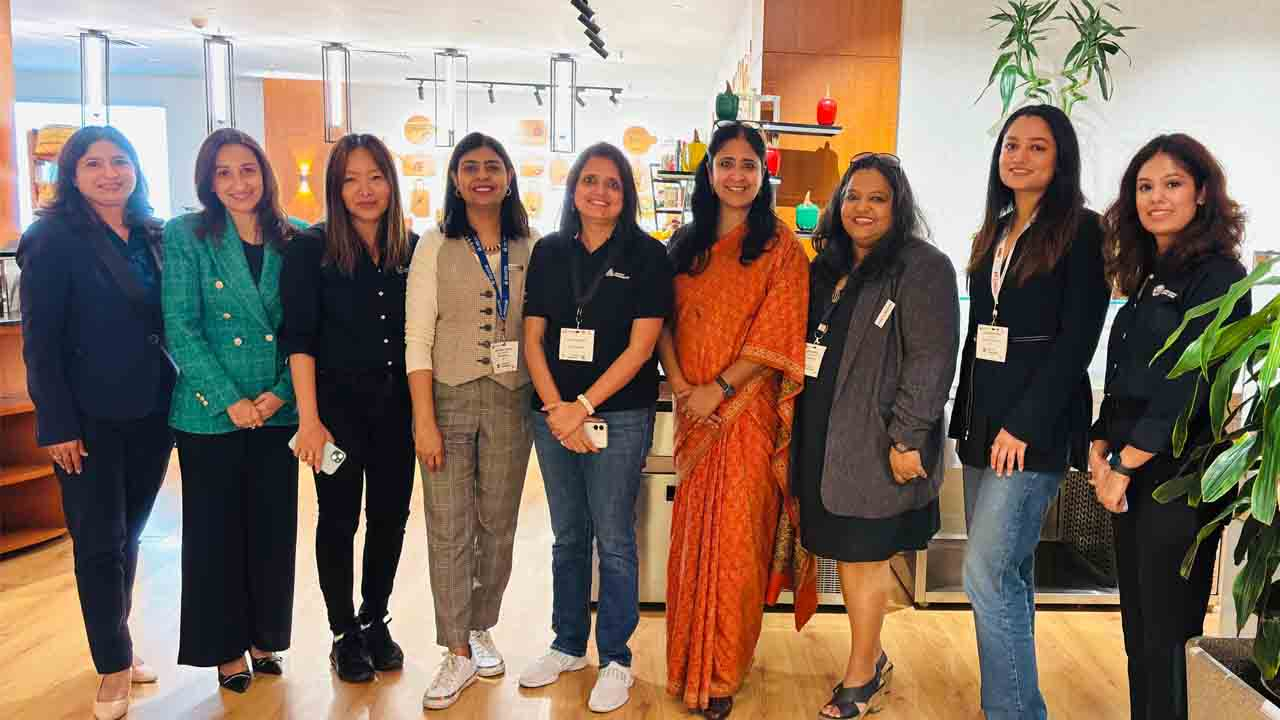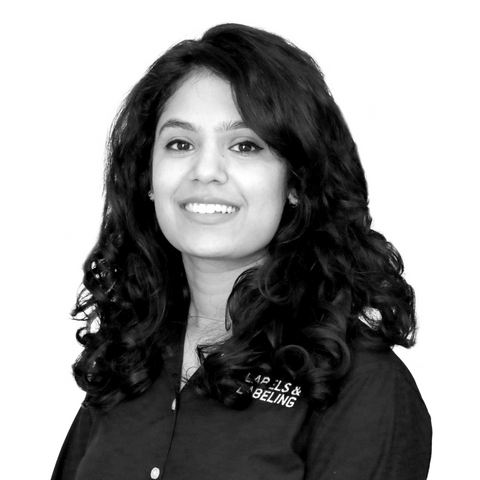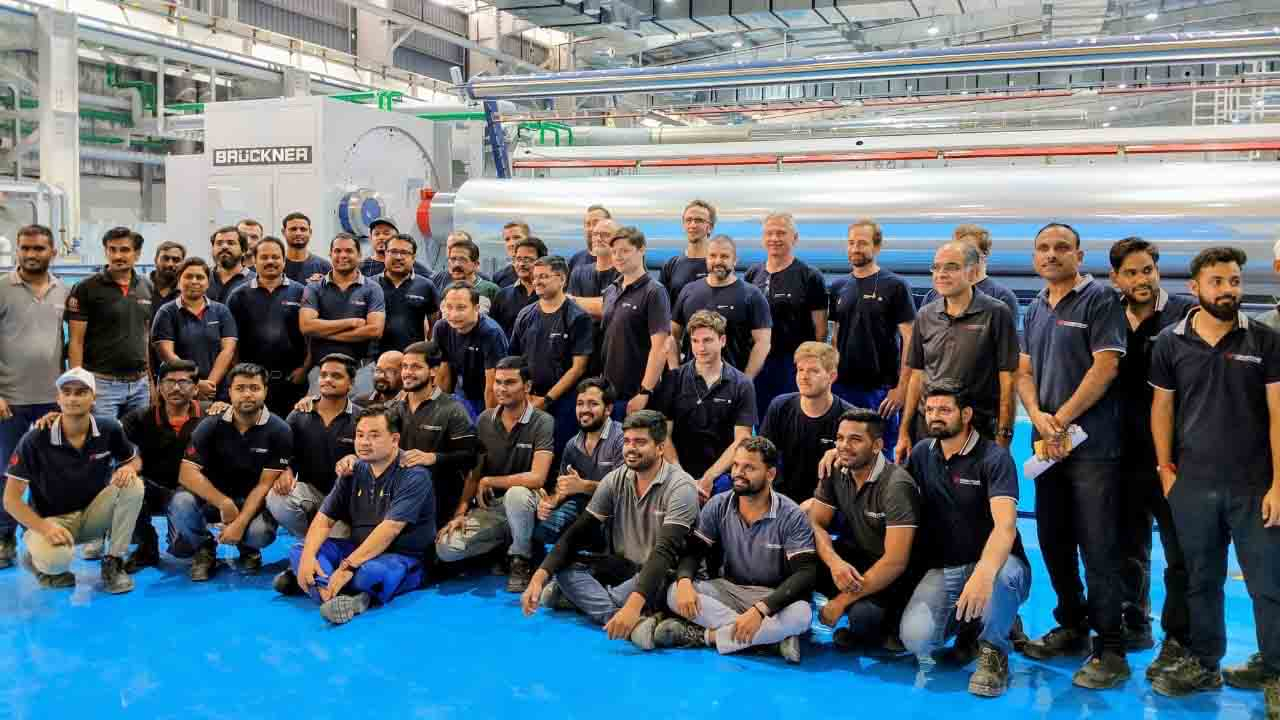Addressing gender gap in India’s label industry
Despite the technological advancements and growth of the Indian packaging and labeling industry continues to struggle with the underrepresentation of women in technical and operational roles.

Despite advancements in India’s label and flexible packaging sector, women remain underrepresented, especially in technical and operational roles. This gender gap limits diversity, innovation, and growth, particularly on the male-dominated shopfloor.
To address this challenge, Labelexpo India 2024 hosted a Women in Print luncheon, gathering women leaders from leading companies in the label industry.
Led by Jade Grace, managing director of Labelexpo Global Series, the discussion revolved around the low representation of women and strategies to encourage their participation and success in the fi eld.
Strategies shared
Sonal Sheth, director of Sheth Printograph, proposes a four-fold strategy to increase women’s participation in the industry.
‘Increasing awareness at the education level, where more young women are encouraged to take STEM as a subject, will create a pool of candidates to be absorbed in the corporate world,’ she says.
‘Management should change their mindset to include more women in their core functions of production, planning, design and R&D, rather than limiting them to marketing, finance and HR. Companies must also formulate conducive policies and incentive structures flexible for women.’
She adds that women should be offered equal representation in public forums and speaking opportunities, to showcase their intellect and capabilities.
Ashima Ahuja, director of Multitec, highlights the cultural barriers that discourage women from participating in shopfloor roles. ‘Multitec is a traditional engineering company with a state-of-the-art machine shop and an expansive R&D division. We actively participate in job fairs at engineering colleges to recruit top talent, yet it’s disappointing to see so few women opting for shopfloor experience. A successful R&D designer must work closely with the shop floor, but in India, this space remains predominantly male-dominated—a cultural barrier we need to address. Breaking this stereotype is vital to fostering diversity.’
The industry must focus on transforming mindsets at the grassroots level.
Encouraging diversity and inclusion in engineering from an early stage will build a more equitable and innovative industry.
A successful R&D designer must work closely with the shopfloor, but in India, this space remains predominantly male‑dominated – a cultural barrier we need to address
Bhavprita Harshawardhan, director of digital solutions at Avery Dennison in South Asia, adds: ‘The industry must create visibility about its opportunities and equitable workplaces for women. Role model women leaders should become more visible and share their positive experiences in the industry. And companies should consciously create policies and workplaces more suitable for women.’
Priyanka Singla, director of segment development and sustainability, label and graphic materials, South Asia, Avery Dennison India, stressed that the industry needs women leadership more than ever.
‘When any industry faces peculiar urgency around innovation, new ideas, inclusion, high profitability and upliftment across the value chain, it always benefits significantly when women assume leadership roles.’
She also notes that manufacturing setups are upgrading to bring in the latest technology and want young talent to join.
To attract young talent, they also need to see empathetic leaders making decisions at these organizations.
Singla highlights companies such as Avery Dennison for setting an example.
‘Several myths around our industry need to be busted, especially about difficult working conditions or male-dominated teams. This onus is on the industry forerunners such as Avery Dennison, which has specific mandates to have 25 percent above manager-plus women employees and has put in place a rigorous mechanism to train in-house talent to take senior roles.’
Shagun Walia, head of marketing communication at Avery Dennison for South Asia and Southeast Asia, echoes the strides women have made at the company.
‘Though historically underrepresented in manufacturing, women are now leading change in labels and print, driving innovation and progress. At Avery Dennison, we take immense pride in cultivating an environment where talent thrives, irrespective of gender. Women here are leading critical initiatives across strategy, operations, and innovation, proving that this industry holds vast opportunities for those with passion and vision.’
Achieving gender equality in India’s label and packaging industry requires shifting mindsets, creating opportunities, and breaking stereotypes. Inclusive workplaces and strong female leadership will unlock the next generation’s potential.
Stay up to date
Subscribe to the free Label News newsletter and receive the latest content every week. We'll never share your email address.


